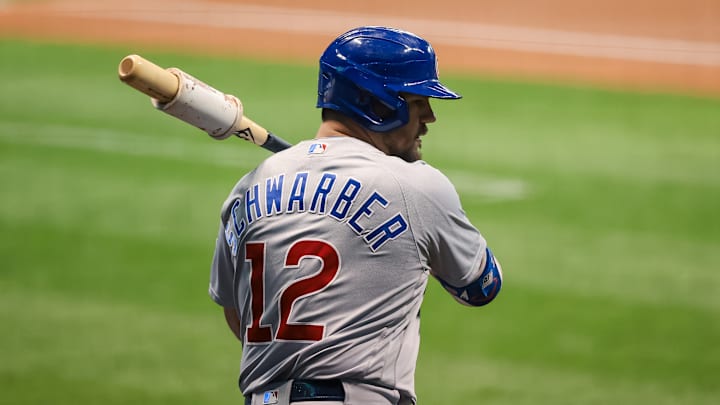When the Chicago Cubs made the decision to non-tender left fielder Kyle Schwarber after the 2020 season, it was a calculated risk.
Rather than bring Schwarber back for approximately $10MM, the Cubs made the decision to non-tender the left fielder as there was a sense that the former first-round pick reached his ceiling as an offensive player. The issue with that thinking for the Cubs is that they overlooked the fact that Schwarber was elite at the one thing that the team's offense lacked: hitting home runs.
Looking past the COVID-shortened 2020 season, Schwarber had 39 home runs for the Cubs in 2019. Schwarber led the Cubs in home runs during the 2019 season with Kris Bryant falling in behind him with 31.
Why is that significant for the Cubs as they are about to embark on the 2024 season?
The reason is that 2019 represents the last time that the Cubs have had a legitimate power hitter in their lineup.
Last year they had a player hit 30+ home runs:
— Codify (@CodifyBaseball) February 15, 2024
2023 ARI ATL BOS CWS DET HOU KC LAA LAD MIA NYM NYY OAK PHI SD SEA TB TEX
2022 BAL MIL STL TOR
2021 CIN CLE MIN
2020
2019 CHC COL PIT WSH
2018
2017
2016
2015
2014
2013
2012
2011
2010
2009
2008
2007
2006
2005
2004 SF
The Chicago Cubs' offense has lacked power for the past four seasons and that is something that needs to change.
Throughout much of the past four years, Jed Hoyer has said time after time that the Cubs are a team that has lacked the ability to hit the ball over the fence. That is why the calculated risk that the Cubs took after the 2020 season to part ways with Schwarber has proven to be a mistake.
The Cubs are entering the 2024 season and based on their current roster, Christopher Morel would seem to be the only player that has the potential to hit 30 home runs this season. Even if the Cubs bring back Cody Bellinger, a large reason for their caution over a potential long-term deal with Bellinger is the fear of a power regression.
The success of teams such as the Atlanta Braves and Texas Rangers has proved that a team has to feature a player who can turn a game on its head with one swing. The Cubs don't have that right now and it's a problem that Hoyer has been negligent in addressing.
